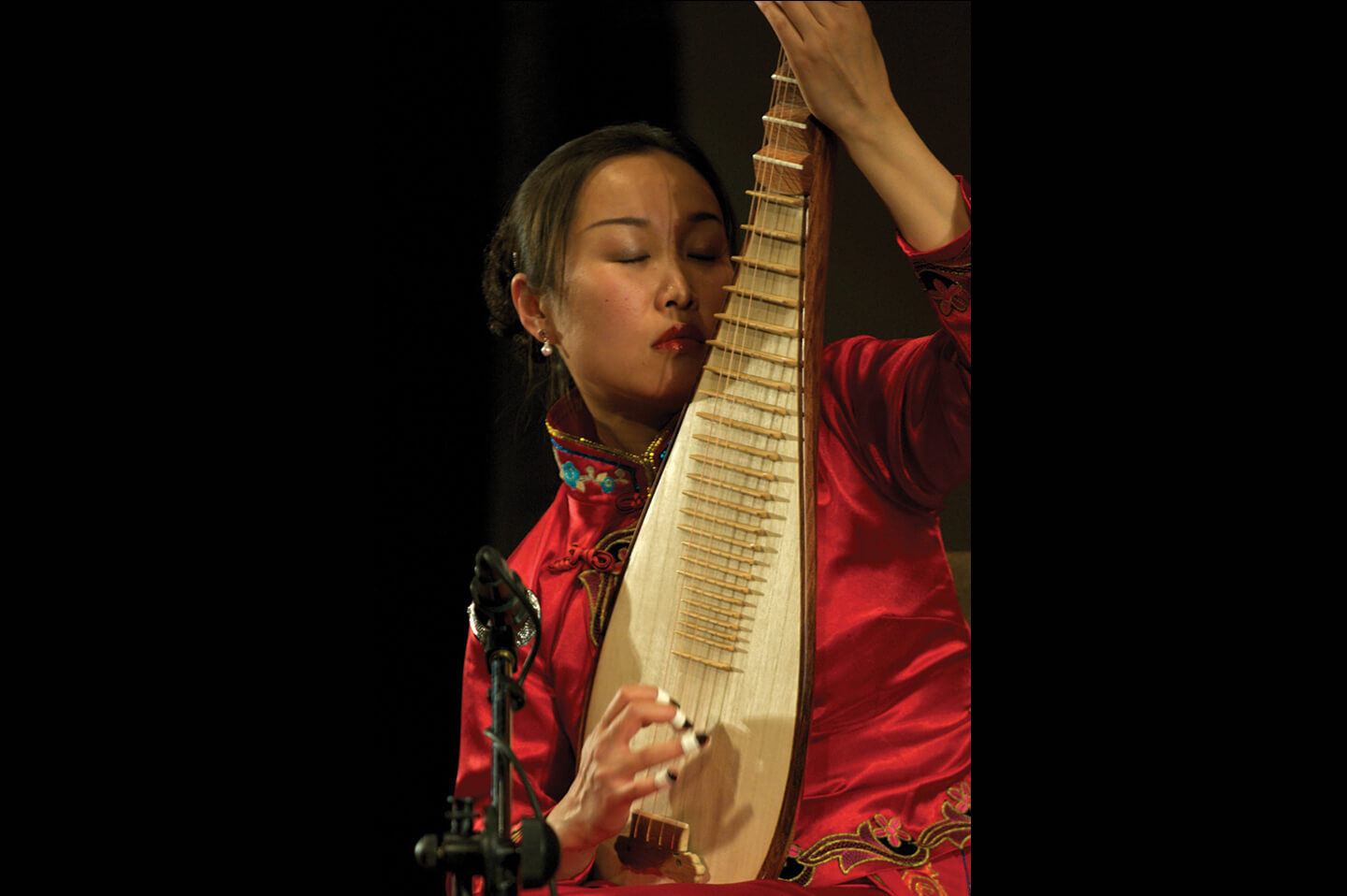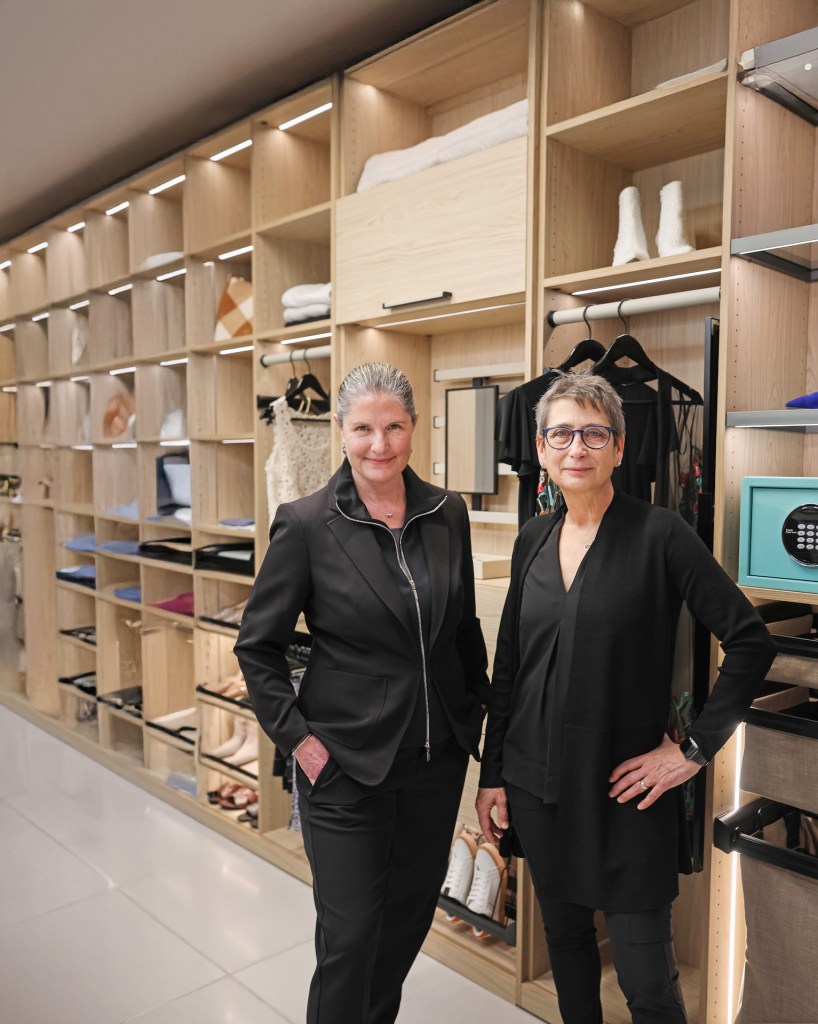Virtuoso Plays Rare Instrument

Concert goers who come to the Old Whalers’ Church in Sag Harbor on Sunday, May 20, at 3 PM will be in for a royal treat, when Liu Fang, known worldwide as “The Empress of Pipa,” shows off her expertise on a 2000-year-old instrument few have heard, let alone heard of.
The pipa [pronounced peepa], which resembles a lute, caught her “heart and soul,” noted the 44-year-old virtuoso. Fang credits her love for music to her mother, an opera singer, who gave her a childhood filled with folk songs. She was six when the pipa entered her life, and though at 15 she went on to study the guzheng, a Chinese zither, at the Shanghai Conservatory of Music, the pipa remained her favorite instrument.
Fang is “passionate” about playing it with symphony orchestras and in small groups dedicated to performing pipa concerti. Her resume boasts numerous awards, honors, and recordings, including concerts on TV. At 22, when she left China to live and study in Canada, she had the pleasure of performing for the Queen of England.
The May 20 performance will be the third and last of the 2017-18 season for “Bach, Before & Beyond,” a three-year-old classical chamber music series inaugurated by Walter Klauss, organist and artist-in-residence at Old Whalers. As he delights in pointing out, BBB is the only year-round classical music celebration on the East End.
Fang’s connection with Klauss came about serendipitously, she noted. They met when she and her husband attended “A Mid-summer Music Dream” festival in Quebec and heard him play. “We were very much impressed with his music and enjoyed every minute of the concert,” she said.
Chatting led to an invitation to come to Sag Harbor. Hearing the pipa would be something new for classical music audiences, Klauss thought — not only because of the instrument but also because the pipa draws on a repertoire that includes some pieces that date to the Tang Dynasty (618-907 A.D.).
Fang’s musical passions are not all Eastern, though interpreting traditional Chinese music has been at the heart of her various European, Canadian, and American tours. She also loves Western classical, and traditional music from India, Japan, Persia, Vietnam, and Arabic cultures.
What should audiences expect May 20? For sure, compositions for an instrument they’ve never seen. The pipa is challenging in ways not known to most Westerners, Fang said, “with techniques that are fully developed and very complicated.”
For instance, she explained, tremolo (the rapid reiteration of a musical tone or of alternate tones) requires extraordinary expertise so that the five fingers of one hand give both clean and strong sound. It takes “a lot of practice and talent,” Fang noted.
Tone is peculiar to the Chinese language and to Chinese music. “Tonality of the same sound can be flat, sliding from lower to higher or from higher to lower or a combination of these,” she said.
In playing the pipa, “the right hand produces the sound by plucking the strings, while the left hand gets the right tonality by acting on the string, pressing or pushing it.” There are many nuances in classical Chinese music, and interpretation depends on “the performer’s understanding of the tradition and personal experience,” Fang added.
She likens traditional classical Chinese music to Chinese poetry, painting and calligraphy, this last, regarded “as the highest art among all arts in China.” There is a “spirit” common to them all.
The music is like “poetry without words.” It should “express feelings, soothe suffering, bring spiritual elevation,” she said. In traditional Chinese painting, “there is no obvious focus in the picture, but each part seems to have its own focus . . . including the empty parts.” In Chinese music, “each phrase is one sentence followed by a certain silence in such a way that the variety of pipa sounds and its silences are combined harmoniously, creating a kind of dynamic link between the performer and the audience,” Fang said.
Perfection of technique, while important, of course, is not enough. “One has to understand the spirit of the music, and pass that spirit to the listeners,” Fang emphasized.
Concert tickets are $20 and the performance will be followed by a meet and greet wine and cheese reception.



